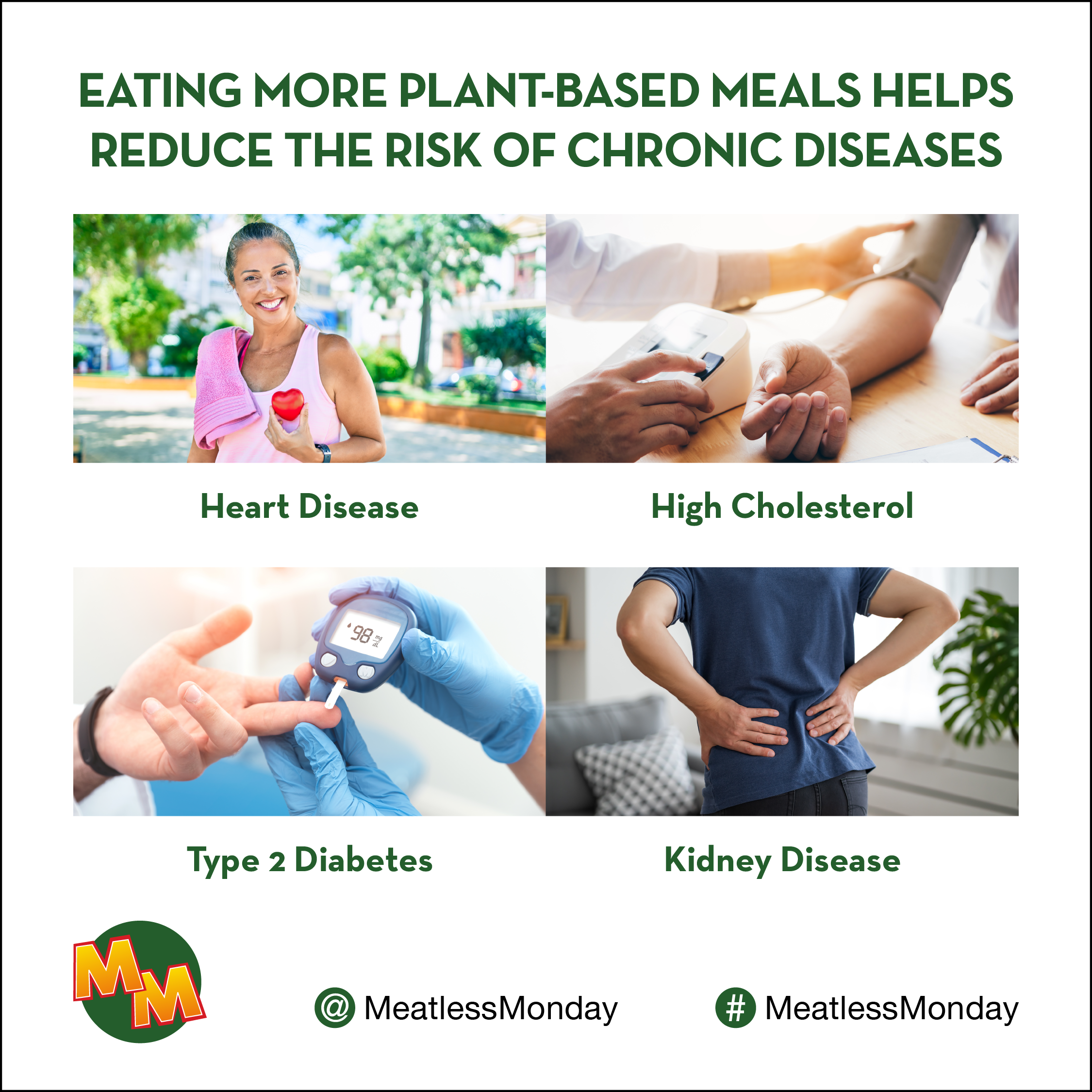Diet is closely linked to overall health and wellness. A balanced diet rooted in plant-based foods and lean proteins can help support muscle growth, strengthen bones, boost immunity, aid in digestive functions, and increase lifespan and longevity. Excessive consumption of red and processed meat has been linked to a variety of chronic diseases, including heart disease, type 2 diabetes, obesity, and cancer, with one study showing that the consumption of processed meats is associated with 42% higher incidence of coronary heart disease and 19% higher risk of diabetes.
How more plants and less meat affects the body
Reduces risk of heart disease
There is a significant link between the consumption of red and processed meats and heart disease. Red and processed meats are higher in saturated fats, trans fats, and cholesterol than other protein options. In one research study, one serving of processed meat per day was associated with a 15% higher risk of cardiovascular disease death, while another study showed that substituting meat protein with lean or plant-based protein is associated with overall lower mortality.
Protects against type 2 diabetes
Many dietary options have been shown to reduce the risk of type 2 diabetes, such as fiber-rich foods like beans and legumes, nuts, seeds, fruits, vegetables, and whole grains. Eating plant-based proteins instead of processed meats, like hot dogs and bologna, can also help lower one’s risk of developing the disease. Cutting down on at least one-half serving of red meat daily can decrease the risk of developing diabetes by nearly 15%.
Improves kidney health
Diabetes and hypertension are the leading causes of kidney disease. Lowering red and processed meat consumption and eating more plant-based foods, such as fruits, vegetables, whole grains, nuts, and legumes, can help prevent or manage the progression of chronic kidney disease. Consuming a diet rich in red meat and animal proteins can damage your kidneys, as these foods are hard to process, putting extra strain on your kidneys and hindering waste filtration.
Boosts immune system function
Fruits and vegetables contain a broad spectrum of nutrients and special natural compounds called phytochemicals and antioxidants that help prevent damage to cells and defend against harmful pathogens. For example, foods high in vitamin C, an antioxidant, increase the production of white blood cells to help fight infection, while foods rich in vitamin E help protect the cells from damage and enhance immune system function. Citrus fruits, dark leafy greens, blueberries, bell peppers, sweet potatoes, and seeds are all sources of these beneficial nutrients.
Promotes a healthy weight
Substituting plant-based foods for meat is likely to result in a healthier body weight. Studies indicate that people who eliminated meat from their diets lost an average of 10 pounds without intentionally reducing calorie intake or increasing exercise. Minimally processed plant-based foods are generally lower in calories, cholesterol, and saturated fats while higher in fiber and other essential nutrients.



